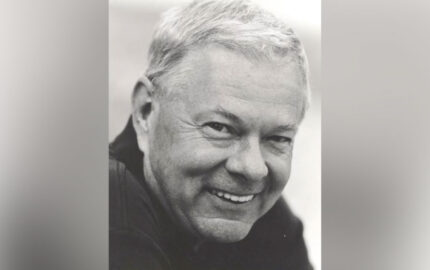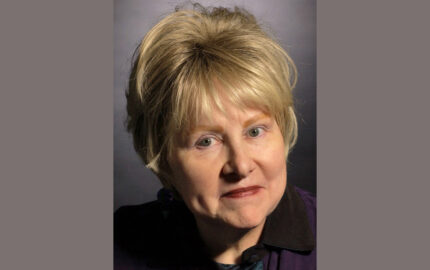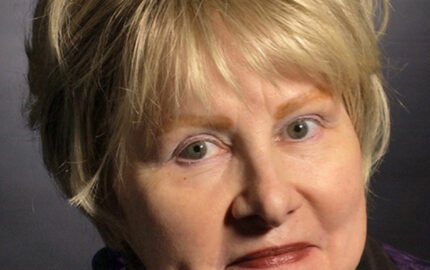Much has been written about John Carroll's flair as a journalist, but not enough has been said about the quiet but determined courage that made him special—as a reporter but even more impressively as an editor.
He followed a simple ethic—that the job of a newspaper is to ferret out the truth about newsworthy events without favor or compromise; and as simple as this principle sounds, it came close to derailing his career on at least three occasions.
The first was in Vietnam in 1968, when he and I first met. He went to Khe Sanh, a remote Marine installation that had figured in the news when the U.S. Marines were defending it as a strategically important base of operations. He discovered that as the news and the action had passed it by, the military establishment was quietly closing the place and trucking it away in pieces. John wrote the story, and the military command revoked his credentials as a correspondent, saying he had violated a ban on reporting on ongoing troop movements. John pointed out that he was not revealing information to the enemy as they knew the installation was closing and were, in fact, shooting at the trucks as they left. The press corps knew that John was right and rallied to his defense, causing the military to back down.
After his distinguished reporting career, John built a strong editing reputation as metropolitan editor on The Philadelphia Inquirer, executive editor in Lexington, Kentucky, and top editor of The Baltimore Sun and Los Angeles Times. Within a few months, the publisher who hired John in Baltimore wanted to call key shots in the newsroom, including decisions John thought would compromise newsroom integrity. John decided to write a letter to executives at Times-Mirror, the corporate parent of the Sun, asking for a writing job on the Los Angeles Times and explaining why his editorship of the Sun was no longer tenable.
In a telephone call, I applauded his stand but cautioned him that when clashes between editors and publishers were taken to the highest corporate level, corporate officials ruled with publishers virtually 100 percent of the time, contending that to do otherwise would sabotage the chain of command. John was well aware of this, but thought that taking a stand might ease the job for the next Sun editor. To his amazement and mine, the Times Mirror corporate brass, to their everlasting credit, sacked the publisher and kept John as editor.
Some years later in Baltimore, a new publisher ordered John to water down a story reporting on a conflict of interest between a Baltimore County executive and a credit card company he was enticing to the county. John argued strenuously against altering the story and was ordered by the publisher to say no more. John staked out the area between the publisher's door and the elevator and resumed the argument when the furious publisher left the office for home.
My wife Susan and I were in Mexico and John and his wife, Lee, joined us there, convinced that the Baltimore chapter of his career was over and wanting to discuss what was next in his life. He had been there less than two days when the publisher caved. The newsroom had revolted; the publisher was now willing to publish a forthright story and wanted John back to calm the newsroom.
John was seldom impulsive. When he took stands, he thought about them long and hard. And despite a record string of Pulitzers on the Times in a five-year period, he found himself constantly struggling with budget cutters. He was prepared to make concessions for the financial health of the company, but he thought carefully about how far he could go in making cuts without setting the newsroom on a dangerous downward spiral. When that point came, he stood firm. He left the paper, deciding that he could not preside over the systematic dismantling of a great newspaper.
John figured it this way: He loved being a journalist and an editor, but there were prices he would not pay to keep his job. He was, quite simply, one of the great ones.
He followed a simple ethic—that the job of a newspaper is to ferret out the truth about newsworthy events without favor or compromise; and as simple as this principle sounds, it came close to derailing his career on at least three occasions.
The first was in Vietnam in 1968, when he and I first met. He went to Khe Sanh, a remote Marine installation that had figured in the news when the U.S. Marines were defending it as a strategically important base of operations. He discovered that as the news and the action had passed it by, the military establishment was quietly closing the place and trucking it away in pieces. John wrote the story, and the military command revoked his credentials as a correspondent, saying he had violated a ban on reporting on ongoing troop movements. John pointed out that he was not revealing information to the enemy as they knew the installation was closing and were, in fact, shooting at the trucks as they left. The press corps knew that John was right and rallied to his defense, causing the military to back down.
After his distinguished reporting career, John built a strong editing reputation as metropolitan editor on The Philadelphia Inquirer, executive editor in Lexington, Kentucky, and top editor of The Baltimore Sun and Los Angeles Times. Within a few months, the publisher who hired John in Baltimore wanted to call key shots in the newsroom, including decisions John thought would compromise newsroom integrity. John decided to write a letter to executives at Times-Mirror, the corporate parent of the Sun, asking for a writing job on the Los Angeles Times and explaining why his editorship of the Sun was no longer tenable.
In a telephone call, I applauded his stand but cautioned him that when clashes between editors and publishers were taken to the highest corporate level, corporate officials ruled with publishers virtually 100 percent of the time, contending that to do otherwise would sabotage the chain of command. John was well aware of this, but thought that taking a stand might ease the job for the next Sun editor. To his amazement and mine, the Times Mirror corporate brass, to their everlasting credit, sacked the publisher and kept John as editor.
Some years later in Baltimore, a new publisher ordered John to water down a story reporting on a conflict of interest between a Baltimore County executive and a credit card company he was enticing to the county. John argued strenuously against altering the story and was ordered by the publisher to say no more. John staked out the area between the publisher's door and the elevator and resumed the argument when the furious publisher left the office for home.
My wife Susan and I were in Mexico and John and his wife, Lee, joined us there, convinced that the Baltimore chapter of his career was over and wanting to discuss what was next in his life. He had been there less than two days when the publisher caved. The newsroom had revolted; the publisher was now willing to publish a forthright story and wanted John back to calm the newsroom.
John was seldom impulsive. When he took stands, he thought about them long and hard. And despite a record string of Pulitzers on the Times in a five-year period, he found himself constantly struggling with budget cutters. He was prepared to make concessions for the financial health of the company, but he thought carefully about how far he could go in making cuts without setting the newsroom on a dangerous downward spiral. When that point came, he stood firm. He left the paper, deciding that he could not preside over the systematic dismantling of a great newspaper.
John figured it this way: He loved being a journalist and an editor, but there were prices he would not pay to keep his job. He was, quite simply, one of the great ones.


